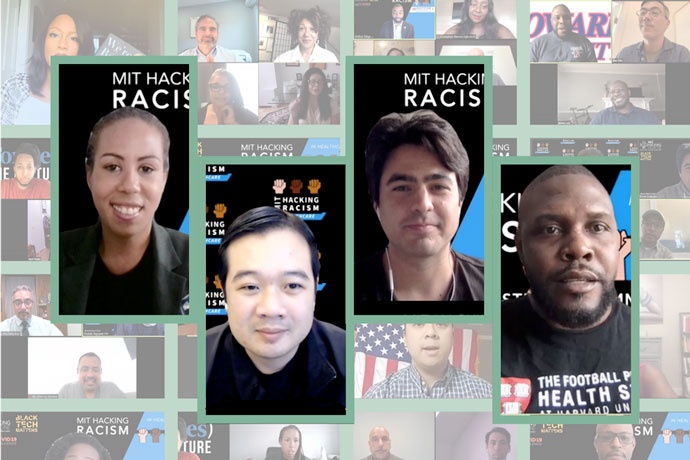Addressing structural racism in health care as an innovation opportunity
Addressing structural racism in health care as an innovation opportunity
October 9, 2020 | MIT News Office | Institute Community and Equity Office
Postdoc Freddy Nguyen, grad student Emre Ergecen, and Visiting Assistant Professor Charles Senteio describe collective actions to tackle health inequities and disparities.

Far-reaching effects of structural racism can be seen in all facets of American life. This year, as Americans witnessed widespread demonstrations stemming from racial injustice at the hands of officers in law enforcement, a ground swell of conversations about race and pleas for action emerged.
One area in which racism has had significant effects is health care equity, a fact that has been exacerbated by the Covid-19 pandemic. In light of current events, members of the MIT community involved in the successful hackathons MIT Covid-19 Challenge and MIT Hacking Medicine sought to explore the role of racism embedded in U.S. health care structures. More specifically, how could they tear down racism in health care using proven hackathon methodology traditionally applied to other complex health care problems?
With these questions in mind, a team of MIT students, postdocs, and others, in collaboration with the nonprofit organization Black Tech Matters, began engaging the community both within and outside the walls of MIT to galvanize individuals, stakeholders, and communities from different personal and professional backgrounds to unite by a call to action. As health hackathons have been used by an increasingly wide range of organizations to solve tough and diverse health care problems and harness future business opportunities, the group organized a unique virtual hackathon, MIT Hacking Racism in Healthcare. Designed in a 48-hour sprint format, the event takes place Oct. 16-18, and is open to all interested participants. Three of the organizers, Freddy Nguyen, a research fellow with the MIT Innovation Initiative; Emre Ergecen, a graduate student in electrical engineering and computer science; and Charles Senteio, Dr. Martin Luther King Jr. Visiting Assistant Professor in the MIT Sloan School of Management, spoke recently on how collective action can be spurred by crowdsourced events such as hackathons.